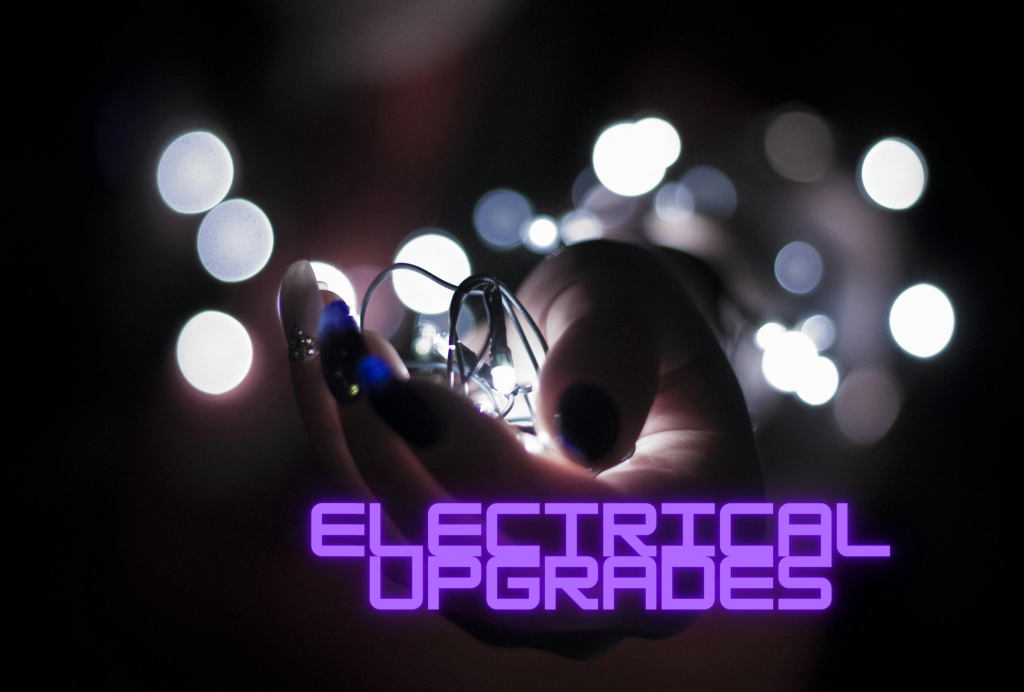Introduction: In today’s fast-paced world, where technology is ever-evolving, ensuring your home’s electrical system is up to date is crucial for safety, efficiency, and comfort. Electrical upgrades not only enhance the functionality of your home but also increase its value and reduce the risk of electrical hazards. In this comprehensive guide, we’ll explore various electrical upgrades that can transform your home, providing insights and tips to help you make informed decisions.
Understanding the Importance of Electrical Upgrades
Ensuring your home’s electrical system is modern and efficient is paramount for various reasons. From improving energy efficiency to enhancing safety and convenience, electrical upgrades offer a multitude of benefits.
Upgrading to LED Lighting
One of the most impactful electrical upgrades you can make is transitioning to LED lighting. LED lights consume significantly less energy than traditional incandescent bulbs, leading to lower utility bills and reduced environmental impact. Additionally, LED lights last much longer, saving you money on replacements in the long run. You may also like to read about 7 Expert Tips for Effective Plumbing Repairs.
Smart Home Integration
Embracing smart home technology can revolutionize the way you interact with your living space. Integrating smart devices, such as thermostats, lighting controls, and security systems, allows for remote monitoring and control via smartphone apps. Not only does this enhance convenience, but it also improves energy management and security.
Electrical Panel Upgrade
An outdated electrical panel can pose serious safety risks and limit the capacity of your home’s electrical system. Upgrading to a modern electrical panel not only ensures compatibility with today’s electrical demands but also enhances safety by reducing the risk of electrical fires and overloads.
Surge Protection Installation
With the increasing prevalence of electronic devices in modern households, protecting them from power surges is crucial. Installing surge protection devices safeguards your appliances and electronics from voltage spikes, extending their lifespan and minimizing the risk of damage due to power fluctuations.
Adding GFCI Outlets
Ground Fault Circuit Interrupter (GFCI) outlets are designed to protect against electrical shocks in areas prone to moisture, such as kitchens, bathrooms, and outdoor spaces. By replacing standard outlets with GFCI outlets, you enhance safety and compliance with electrical codes.
Whole-House Rewiring
In older homes, outdated wiring can pose significant safety hazards, including fire risks and electrical failures. Investing in whole-house rewiring ensures that your home’s electrical system meets current safety standards and can accommodate modern electrical loads, providing peace of mind for you and your family.
Installing Dedicated Circuits
High-power appliances such as refrigerators, air conditioners, and washing machines require dedicated circuits to operate safely and efficiently. By installing dedicated circuits for these appliances, you prevent overloads, voltage drops, and potential hazards, ensuring reliable performance and longevity.
Upgrading to Energy-Efficient Appliances
In addition to upgrading your home’s electrical infrastructure, investing in energy-efficient appliances can further reduce your energy consumption and utility costs. Energy Star-rated appliances not only consume less energy but also offer superior performance and features, making them a worthwhile investment for any homeowner.
Conclusion
Electrical upgrades are essential for maintaining a safe, efficient, and modern home. From LED lighting and smart home integration to electrical panel upgrades and surge protection installation, there are numerous ways to enhance your home’s electrical system. By investing in these upgrades, you can improve energy efficiency, enhance safety, and elevate the overall comfort and value of your home.
Electrical Upgrades: FAQs
What is the average cost of electrical upgrades?
How long does it take to complete electrical upgrades in a typical home?
Are there any tax incentives or rebates available for electrical upgrades?
Can I perform electrical upgrades myself, or do I need to hire a professional electrician?
Will electrical upgrades increase the resale value of my home?
What safety precautions should I take during electrical upgrades?






